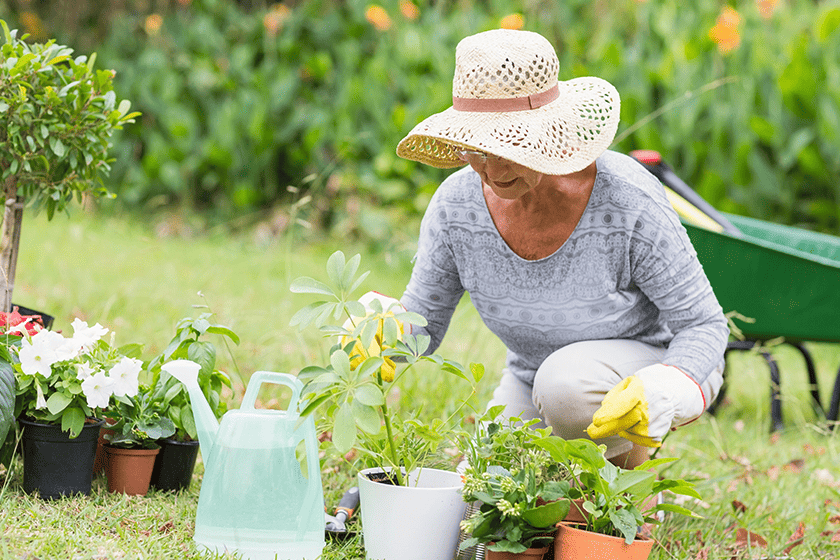Gardening For Seniors: 6 Tips To Make It Easier

Gardening for seniors is a beloved pastime that brings joy, peace and a sense of accomplishment. It offers more than just beauty—it's a way to stay active, maintain mental sharpness and promote overall well-being. However, as we age, certain adjustments may be necessary to make sure gardening remains a safe and enjoyable activity. Here are a few compassionate and practical tips to make gardening easier for residents.
Embrace Raised Garden Beds
Raised garden beds are a fantastic option for residents who may find kneeling or bending difficult. These elevated beds allow you to garden at a comfortable height, reducing strain on your knees and back. Whether you’re planting vegetables or flowers, these beds make it easier to manage your garden without compromising on variety or enjoyment.
Additionally, raised beds can be placed close to patios or walkways, making them even more accessible. You don’t have to limit yourself to ground-level gardens—lift your plants to where you can easily reach them.
Use Ergonomic Tools
The right tools can make all the difference. Ergonomic gardening tools are designed to reduce the strain on your hands, wrists and arms. Lightweight tools with soft, non-slip handles provide better grip and control, making gardening easier and more comfortable.
When choosing tools, look for ones that are both long-handled and lightweight, as this reduces the need for excessive bending and reaching. These tools help you maintain your garden with less effort, allowing you to enjoy your gardening experience without discomfort.
Opt for Container Gardening
For those with limited mobility or space, container gardening offers an excellent alternative. Container gardening allows you to grow plants in pots or containers that can be placed on tables, shelves or patios, making them more accessible and easier to maintain.
Containers can also be moved around to capture the best sunlight or shade throughout the day. With minimal bending required, you’ll find it easier to nurture your plants and enjoy the fruits of your labor—literally!
Plan for Low-Maintenance Plants
Gardening for seniors doesn’t have to be labor-intensive. Choose low-maintenance plants like succulents, perennials or herbs that don’t require daily care or frequent watering. These plants are resilient and thrive with minimal attention, making it easier to keep your garden beautiful year-round.
By choosing plants that are both hardy and drought-resistant, you’ll be able to enjoy your garden without constant upkeep, giving you more time to relax and enjoy your outdoor space.
Focus on Safety
Safety should always be a priority when gardening. Wear gloves to protect your hands and use sunscreen to shield your skin from harmful UV rays. Wearing a wide-brimmed hat and long sleeves can also provide additional protection from the sun while keeping you comfortable.
If you’re working for extended periods, take regular breaks to rest and hydrate. Keep pathways clear and make sure they are stable to prevent falls. Consider installing a bench or seating area in your garden where you can take breaks and enjoy the view without overexerting yourself.
Adapt Your Garden to Your Abilities
Gardening is a flexible activity that can be adapted to suit your needs. If you or your loved one is looking to maintain a garden as part of a healthy lifestyle, it’s important to modify the space as necessary. Vertical gardening can reduce the need for bending, while trellises and hanging baskets bring the beauty of nature within arm’s reach. As abilities change, so too can your garden—allowing you to continue enjoying this fulfilling activity in a way that works best for you.
Whether you're cultivating a small patch of herbs or maintaining a sprawling garden, these tips can help make gardening for seniors a rewarding and accessible experience. If you or a loved one is considering joining a retirement community, contact our Independent Living community today to learn more about how we incorporate enriching activities like gardening into daily life.
.png?width=250&height=65&name=Bethel%20Park%20white%20(1).png)